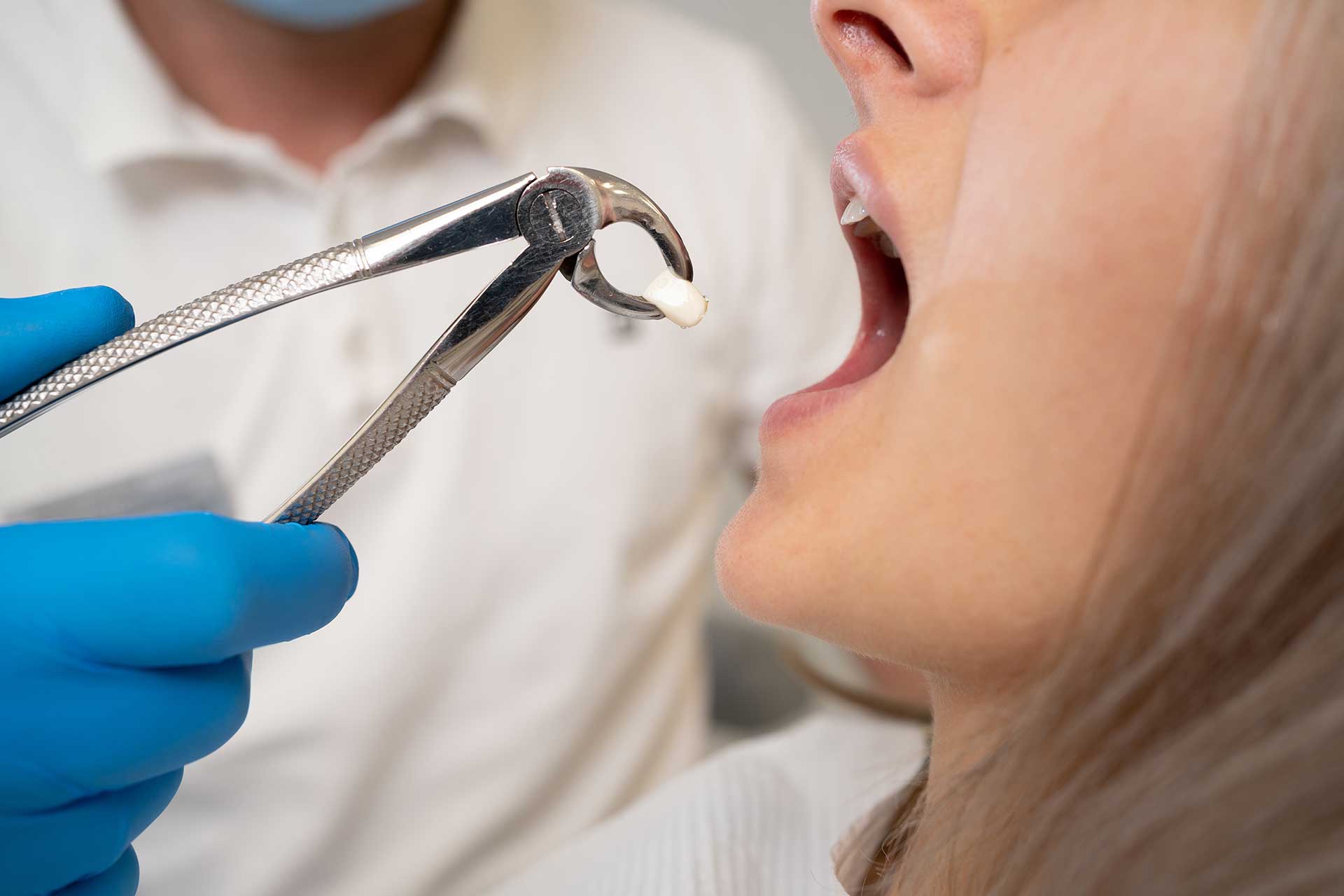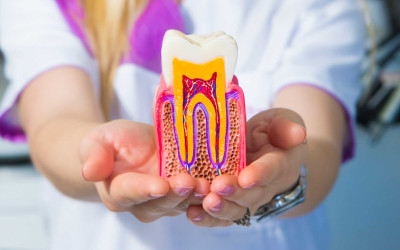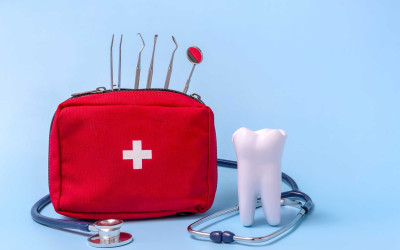Surgical Tooth Extraction: Reasons and Recovery Process

Surgical Tooth Extraction: Reasons and Recovery Process
- 6 February 2024
- 7627 views
Explore the reasons and recovery process of surgical tooth extraction! Take steps toward a healthy mouth with professional care and accurate information.
This content is for informational purposes only and does not replace medical advice, diagnosis, or treatment. Please consult a healthcare professional for any health concerns.
Table of Contents
Surgical tooth extraction refers to the removal of a tooth by a dentist using a special surgical procedure. This type of tooth extraction is usually preferred in cases such as broken or decayed teeth, infections at the root ends of the teeth, gum problems, or jaw structure issues that cannot be addressed through other methods. It is typically performed under local anesthesia, but in more complex cases, general anesthesia may also be used.
What Are The Reasons For Surgical Tooth Extraction?
Surgical tooth extraction is performed for the following reasons:
- Tooth Misalignment or Impacted Teeth: In some cases, teeth may not erupt normally or remain impacted below the gum line, requiring surgical intervention.
- Broken Teeth: Tooth decay or teeth broken due to accidents or trauma may necessitate surgical tooth extraction.
- Tooth Infections (Abscess): Infections occurring inside or around the gum tissues may require surgical tooth extraction.
- Residual Tooth Roots: In cases where a tooth could not be completely extracted during a previous procedure, surgical methods may be employed to remove residual tooth roots.
- Orthodontic Reasons: Extraction may be necessary during orthodontic treatment, and in such cases, surgical extraction might be preferred.
How Is Surgical Tooth Extraction Performed?
Surgical tooth extraction is generally performed under local anesthesia. The basic steps of the treatment process include:
- Anesthesia: Local anesthesia is applied to the gum and surrounding tissues to ensure the patient feels no pain during the extraction procedure. In more complex cases, general anesthesia might be used.
- Tooth Access: The dentist opens the gum and, if necessary, removes part of the jawbone to access the tooth.
- Tooth Extraction: The tooth is carefully extracted using special surgical instruments.
- Wound Stitching: After the extraction, the gum is properly closed, and stitches are applied if necessary.
What to Consider During the Healing Process
The recovery process after surgical tooth extraction is crucial. Some factors to consider during this period include:
- Pain and Swelling: Mild pain and swelling in the first few days are normal. Pain relievers and cold compress applications can help during this period.
- Wound Care: Regular cleaning of stitches on the gum and maintaining oral hygiene is crucial.
- Dietary Control: Consuming soft foods after surgery and avoiding pressure on the surgical area is important.
- Regular Medication: Taking prescribed antibiotics or pain relievers as directed by the dentist is essential.
- Follow-up Appointments: Attending regular check-ups recommended by the dentist to monitor the healing process is important.
- Reporting Complications: Seeking immediate dental attention if abnormal conditions such as excessive bleeding or signs of infection are observed is necessary.
The postoperative recovery process can vary from individual to individual. Therefore, it is important to adhere to the instructions of your dentist and pay attention to any additional recommendations if necessary.
Post-Surgical Tooth Extraction Recommendations and Tips
Consider the following recommendations after tooth extraction:
- Avoid Smoking and Alcohol Consumption: Smoking and alcohol consumption can negatively impact the healing process; therefore, it is advisable to refrain from these substances.
- Limit Physical Activities: Avoid excessive physical activities after surgery and prioritize rest.
- Avoid Hot and Spicy Foods: Steer clear of hot or spicy foods that could potentially harm the surgical area.
- Timely Removal of Stitches: It is important to have stitches removed within the timeframe specified by the dentist.
- Monitor Signs of Inflammation and Infection: Keep an eye out for signs such as pain, swelling, redness, or signs of infection, and promptly consult the dentist if any issues arise.
- Be Patient During the Healing Process: The healing process varies from person to person, so patience and adherence to the dentist's recommendations are crucial.
A successful recovery after surgical tooth extraction requires strict adherence to the dentist's instructions. Early detection and intervention in case of any complications during the healing process can prevent potential issues. Therefore, seeking dental attention if any problems arise or symptoms are noticed is essential.







